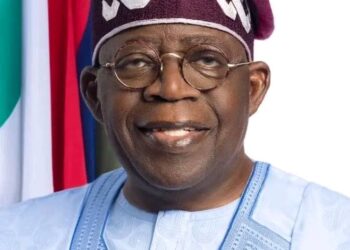The Ministry of Humanitarian Affairs, Disaster Management and Social Development, has signed a Memorandum of Understanding (MoU) with the Save the Children International, for the effective implementation and monitoring of the National Social Investment Programme (NSIP).
Speaking Tuesday in Abuja, during the signing of MoU between the ministry and Save the Children International, the Minister, Sadiya Umar Farouq, said that the partnership will enable the CSO to provide additional capacity building to Independent Monitors as well as carry out spot checks in locations of the NSIP implementation.
She said: “The need to closely Monitor and Evaluate (M&E) the National Social Investment Programme (NSIP) is an important component and its role in program implementation cannot be underrated. This is the Primary reason why the Ministry deliberately launched a strategy on M&E at many levels.
“At the local level, the Ministry engaged the services of 7,500 Independent Monitors (IMs) spread across the 36 states of the Federation and the Federal Capital Territory. These 7500 Independent Monitors are currently on the field monitoring the implementation of the NSIP. Every month, over 250,000 unique programme reports are submitted by the Independent Monitors.
“To further foster accountability, transparency and effectiveness, through this M&E strategy, I directed for the engagement of Civil Society Organizations as an additional layer of close monitoring. After vigorous engagement with several Non-Governmental Organizations (NGOs), it was agreed to partnership with Save The Children International. Save the Children International is a well-recognised NGO that supports several Social Protection Programmes in Nigeria.
“Through this partnership, Save the Children International will engage the services of eighteen (18) other Civil Society Organizations (CSOs) to provide third party monitoring of NSIPs. These CSOs will provide independent report on NSIPs in the states they deliver their support. Furthermore, they will provide additional capacity building to the Independent Monitors as well as carry out spot checks in locations of the NSIP Implementation.
“Today we conclude a long process of vigorous review of this partnership strategy for engagement and the finalization of the Memorandum of Understanding (MoU) reviewed and harmonized by the Legal teams of both parties.
“I am therefore delighted to officially endorse this partnership document to enable the onboarding of Third-Party Civil Society Organizations as an additional layer of monitoring for the National Social Investment Programme. I hereby passionately appeal to the Civil Society Organisations being engaged today and any other relevant stakeholders involved in the monitoring of NSIP to take this duty patriotically and as part of their contribution to Nation Building.”
Speaking on behalf of the Country Director of Save the Children International, Mr. Famari Barrow, the Director, Advocacy, Campaigns, Communications and Media, Mr Amanuel Mano, said the CSO has been operating in Nigeria since 2001 and has been paying more attention to helping the federal government tackle all forms of abuse against children.
He said: “Save the Children is 103 years old, the largest and oldest child-focused international organization, currently present in 120 countries worldwide. Save the Children has been working in Nigeria since 2001 to ensure all children survive, learn and are protected – so that they are able to realise and release their full potential.
“We protect children from all forms of violence, especially girls, orphans, vulnerable children and children affected by conflict. Our programmes work from the community to the national level to promote children’s rights and protection.
“Our partnership will strengthen community participation in decision-making about the programmes and ensure effective management of appeals and complaints.We are therefore happy to be part of history – a team that coordinates the delivery of Social Accountability mechanisms in the National Social Investment Programme.”




